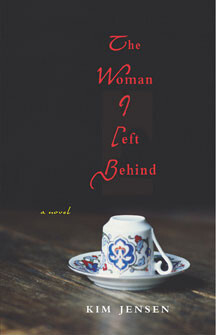The Electronic Intifada 9 April 2006

Before she meets Khalid in California, Irene is largely riding the tide, though inside she feels like swimming against the current. She is used by men, including a university professor who takes advantage of her when she entrusts him with some of her first poems. Also feeling unsatisfied in life, Khalid is a married refugee who was deported from the West Bank and later fled Beirut when, like the city, he began to crumble after the Israeli invasion of Lebanon.
It is their polar experiences and often opposing reference points that eventually cause so much plate-shifting friction between them, causing each lack a hope of reaching an understanding with the other. Meeting for the first time at a campus rally, Irene asks Khalid why she hasn’t seen him before, and he replies that he doesn’t have the money to attend that school. Despite that they are at a demonstration against apartheid in South Africa, Irene naively replies that there must be some way for him to get money — establishing the reoccurring theme of Irene knowing that there is injustice and an imbalance of power in the world, but not being able to fully step out of the system and really understand Khalid’s experience of racism, colonialism, and injustice.
At first, Irene’s sleepy senses are awakened with her turbulent love affair with Khalid, characterized by its extreme highs and lows. Khalid, however, carries the burden of a painful, unreconciled past, and possesses an “uncanny ability to fire out verbal retribution in precise proportion to the abuse that he himself had ever received.” Irene lacks true understanding for Khalid needing closure with his first wife, Bernie. After Khalid’s infidelity with Bernie, Irene subverts to her former lifeless state of existence. Infuriating Khalid, who once “resolved that he would resist death in all its forms,” she merely goes through the motions of life, and thus a great gulf emerges that nearly swallows their relationship.
Indeed, the first pain Khalid ever inflicts on Irene occurs the first day they meet, when he confesses that he is married, though the marriage was arranged so that he could gain residency in the U.S. While Irene longs for a clean start with Khalid, Khalid needs to make amends with the past, and truly grieve for friends he lost in the massacres of Lebanon, his parents who were murdered by Israeli soldiers, and the homeland from which he was forced, before he can give Irene what she needs.
For the two of them, it is not just that they come from different worlds, but that theirs are “two worlds at odds with each other.” For his part, Khalid tells Irene that for two years, he tried to immerse himself in American culture, but “found out that America didn’t want to know me back.”
Meanwhile, Irene struggles with her participation in the system of what she and Khalid consider the corrupt and selfish American way. Before she meets Khalid, and reflecting on how it wrong it was for her to be flirting with her married professor, Irene recalls what she had recently told a friend: “See what happens when you have it all? You feel entitled to even more.”
Irene wants Khalid, and is not willing to give him up, but nearly has an affair with another man. Returning home in shame, she sees Khalid asleep, and realizes that “she didn’t know him at all. She didn’t know his language, his thoughts and dreams, the tragedies of his past.” Khalid feels this distance too, and sometimes examines a sleeping Irene to find that “he’d see not a mate, but a complete outsider” to his painful past, and that falling in love with Irene “felt like a betrayal of the past … He should have married a Palestinian woman, someone who shared these wounds inside him.”
Though Khalid and Irene’s relationship itself is the heart of the matter, it is Jensen’s poetic narrative prose that illuminates her characters’ lives for the reader where the dialogue is sometimes thin, allowing access to Khalid and Irene’s most private thoughts and intimacy. Though she resolves Khalid and Irene’s timely story, one is left anticipating more of Jensen’s compelling prose, for she is an author to watch.
Related Links
Currently based in Ramallah, Maureen Clare Murphy is Arts, Music and Culture Editor of the Electronic Intifada





